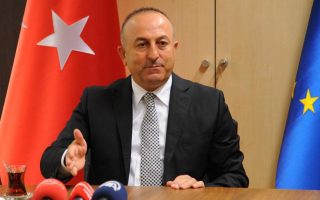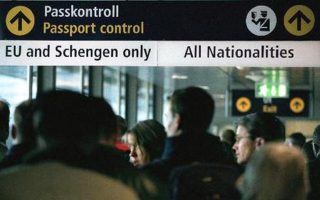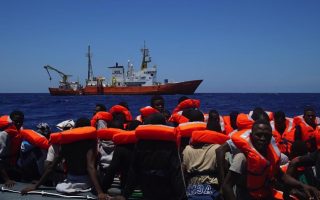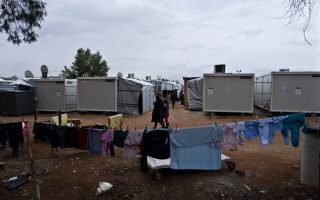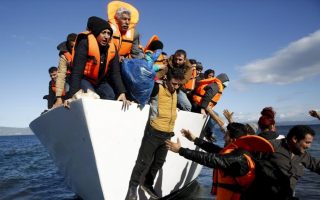No compromise in sight, EU ministers at odds over immigration
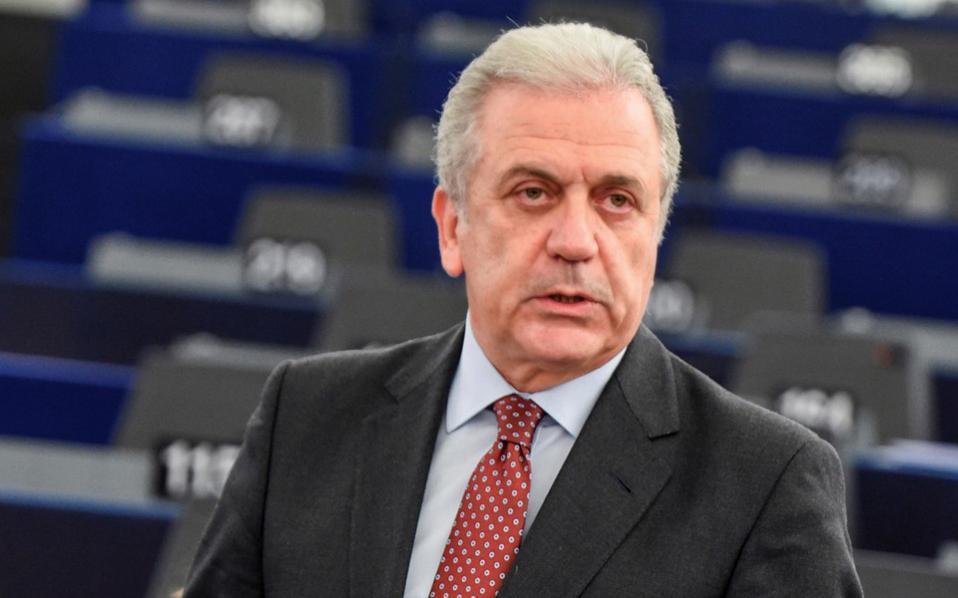
European Union interior ministers were at odds on Friday over how to handle immigration, with heated discussions between states who want more burden sharing and those who oppose any kind of obligatory relocation.
"We are looking for compromises but at the moment they are not there," said Thomas De Maiziere of Germany, which last year took in about 900,000 migrants and refugees.
The ministers disagreed over a proposal by the EU’s current chair Slovakia on reforming the bloc’s asylum system, which collapsed last year as 1.3 million refugees and migrants from the Middle East and Africa reached Europe and member states quarrelled over how to handle the influx.
Overall, the arrivals have decreased from last year but they continue unabated in Italy and tens of thousands of people are still stuck in Greece and Italy, sometimes in dire conditions.
Despite agreeing last year to relocate 160,000 people from Italy and Greece, eastern European countries, including Slovakia, Poland and Hungary, have refused to take any in.
"We cannot pretend that the quotas as we know them now are working," said Robert Kalinak of Slovakia.
"The 160,000 is only a very small part of the million that came to Europe last year and we only relocated less than 10,000 people. Even those who were for this system were not successful. We want to come up with a system that would be effective."
Germany is backed by Sweden, Italy and Malta in pushing for obligatory relocation in the asylum reform. That is precisely what the eastern countries are opposing.
They propose instead to offer more resources to police external borders or take on more responsibility for deportations under what Bratislava dubbed "effective solidarity".
"We should never leave the frontline member states in coping with this very, very complex situation," the bloc’s migration commissioner Dimitris Avramopoulos said. "Solidarity in all the languages of the EU has the same meaning."
"Solidarity must be effective in reality, not just in words."
Security
To regain control over the flows of people into the continent, the EU strengthened its external borders, struck deals with some countries of origin and transit along the migration routes and suspended its Schengen free travel zone.
A year after 130 people were killed in attacks in Paris claimed by Islamic State, the ministers on Friday discussed further enhancing the screening of people at the EU’s external borders by better linking existing databases.
Thousands of Europeans have joined the ranks of the militant group in Syria and Iraq and some have returned to the 28-nation EU, including those involved in the Paris attacks. The bloc fears they are more difficult to spot in the migration wave.
The bloc’s executive European Commission has proposed tightening travel rules for non-EU visitors.
Brussels wants to set up an EU Travel Information and Authorisation System (ETIAS) – akin to the US ESTA – and make visitors from outside the EU who have the right to travel to the bloc without a visa pay 5 euros for an online pre-approval.
"There have been people who had been sent by Daesh (Islamic State) in the past, there have been people who came back from Syria and Iraq in the past," said Julian King, the bloc’s commissioner in charge of security issues.
"The important thing is to make sure that we continue to reinforce our measures … to be as well prepared as we can be to manage that threat."
[Reuters]

